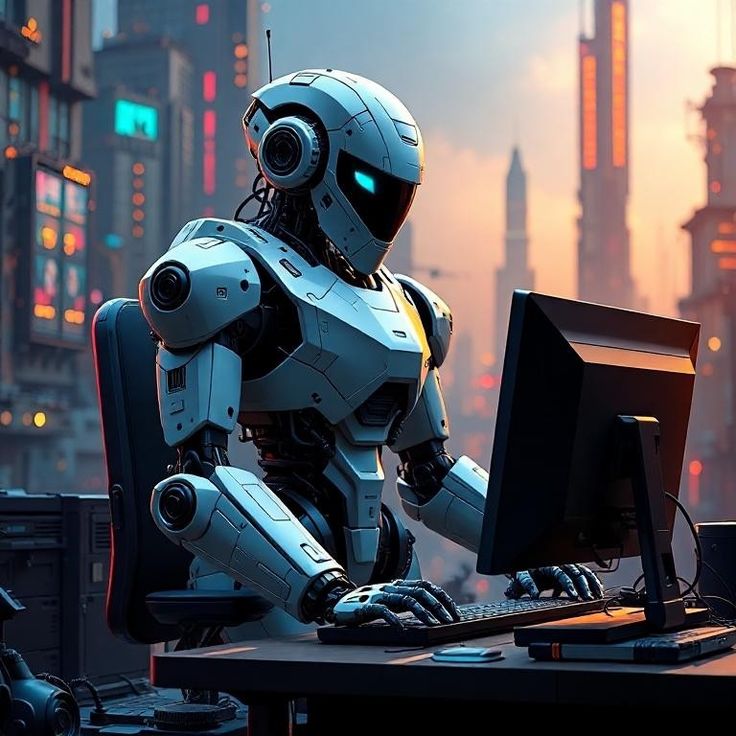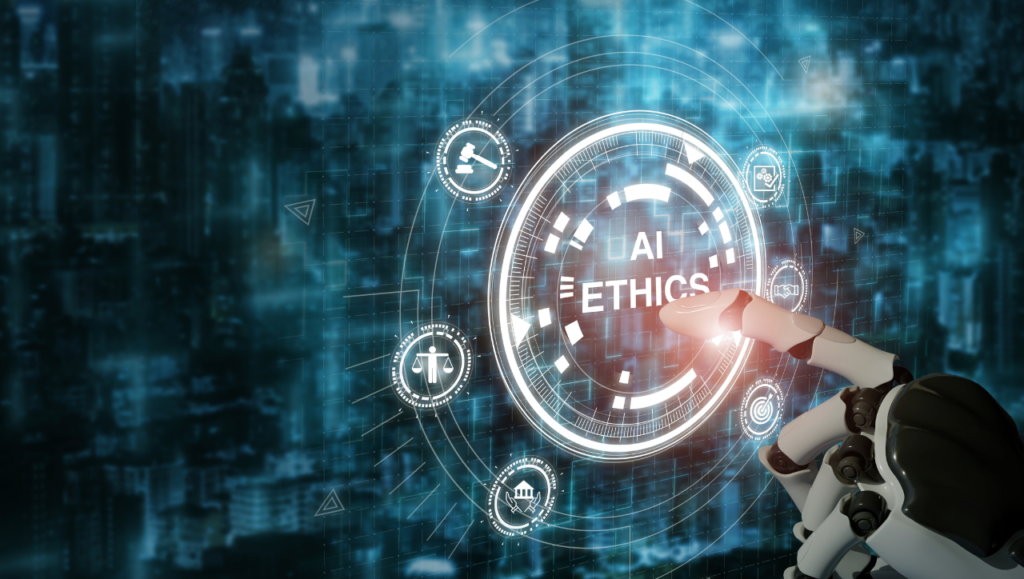In recent years, the world has watched artificial intelligence evolve from a futuristic buzzword into a powerful force driving decision-making across industries. From medical diagnoses to loan approvals, and even to policing and criminal justice, algorithms now shape outcomes that were once the exclusive domain of human judgment. But as AI gains autonomy, a critical question emerges: Who decides what’s ethical in this algorithmic age? This isn’t science fiction—it’s a moral crossroad humanity faces today, where AI and Ethics are tightly intertwined.
Understanding AI and Ethics in Human-Centric Systems
AI and Ethics isn’t just a niche debate confined to academic journals. It’s a pressing societal dilemma. Algorithms are not neutral; they reflect the biases, data, and intentions of their creators. When a recruitment AI system filters out candidates from certain backgrounds, is it optimizing for efficiency—or silently echoing historical prejudice?
Ethics in artificial intelligence doesn’t begin at the point of decision. It starts during design—when engineers, product managers, and data scientists define objectives, select datasets, and create reward functions. This silent architecture of values becomes embedded in how machines think, behave, and judge. But rarely do these professionals represent the full spectrum of society, which raises the ethical dilemma: Whose values are being encoded into our systems?
At this point, it’s important to recall the Cambridge Analytica scandal or the ongoing debates around facial recognition technology, where biased AI systems misidentify people of color more frequently. These are not distant problems. They shape policies, influence elections, and affect personal freedoms.
Who Holds the Moral Compass in a Digital World?
When decisions once made by humans are delegated to machines, accountability becomes fuzzy. If a self-driving car crashes, who is responsible? The programmer? The company? The AI itself? In a world run by algorithms, tracing moral responsibility becomes a high-stakes maze.
Some argue for ethical review boards within tech companies. Others push for government regulation to ensure transparency and accountability. However, regulations often lag behind innovation. And tech companies, driven by profit and competition, may prioritize speed over moral scrutiny.
This is where AI and Ethics becomes more than just policy—it becomes a social contract. Are we comfortable letting algorithms decide who gets a job, a loan, or a second chance at life? If not, how can we build systems that are both intelligent and humane?
Cultural Bias: Ethics is Not Universal
What’s “right” in one culture might be questionable in another. AI systems deployed globally often carry embedded assumptions from their developers’ cultural backgrounds. A machine trained on Western norms might misinterpret behaviors, gestures, or intentions in non-Western societies.

For example, an AI developed in Silicon Valley might not grasp the nuances of social hierarchy in India or the collective decision-making styles in Japan. The result? Ethical confusion at scale. As AI grows global, we must ensure that ethical principles are not monolithic but inclusive.
Can Machines Be Taught to Care?
Let’s pause and ask something fundamental: can AI ever truly be ethical on its own? AI doesn’t possess empathy. It doesn’t understand human suffering or joy. It only optimizes for outcomes. So when we talk about ethical AI, we’re not talking about moral machines—we’re talking about moral humans behind the machines.
In that light, ethics becomes a design problem. What trade-offs do we encode? What values do we prioritize? These aren’t just technical questions. They are deeply philosophical, and they must be asked openly, publicly, and frequently.
The Future: Democratizing the Ethics of AI
The conversation on AI and Ethics must move beyond boardrooms and PhD panels. Students, citizens, teachers, artists—everyone must have a voice in shaping the moral DNA of AI systems. Because these systems will impact everyone, not just tech elites.
One way forward is to demand algorithmic transparency—a clear explanation of how decisions are made. Another is participatory design, where users are consulted during development to ensure that AI aligns with real-world needs. As a society, we must insist that ethics is not a feature—it is the foundation. Just as we wouldn’t build a city without laws or a hospital without hygiene protocols, we shouldn’t build intelligent systems without ethics.
Final Thought: A Mirror Held to Humanity
In the end, AI and Ethics is not only about machines. It’s about us. AI mirrors our logic, our flaws, our priorities, and our prejudices. It forces us to confront who we are—and who we want to become.
The world run by algorithms doesn’t have to be dystopian. But for it to be just, fair, and humane, we must not outsource morality. We must own it. Because in the age of intelligent machines, ethics is not a luxury—it’s our last line of defense.







More Stories
IndiGo Plunges Into Crisis: Questions Over Airline Planning
Asia at Boiling Point: How Weather Is Rewriting the Region’s Future
Maithili Thakur: From Folk Singing Sensation to Rising Political Star